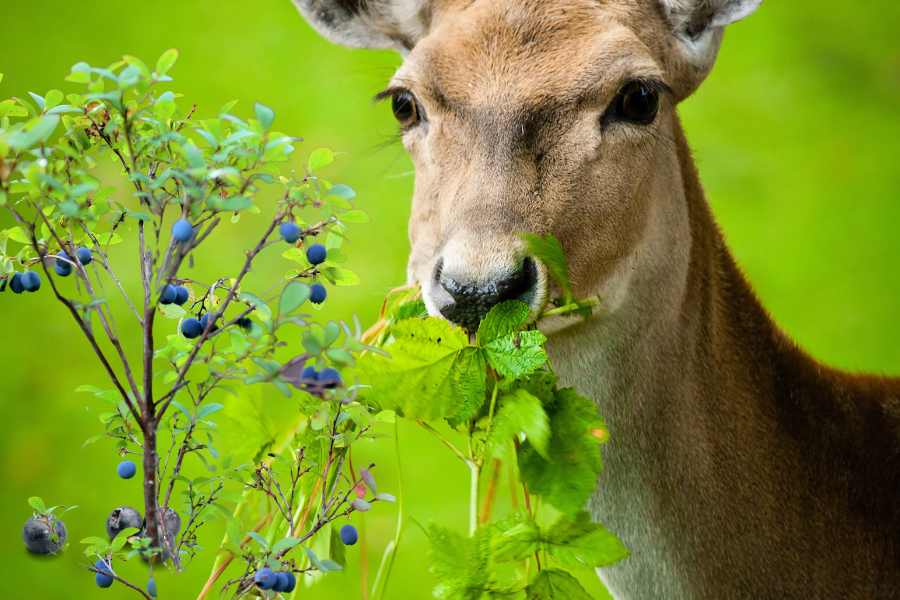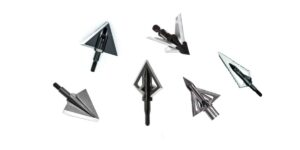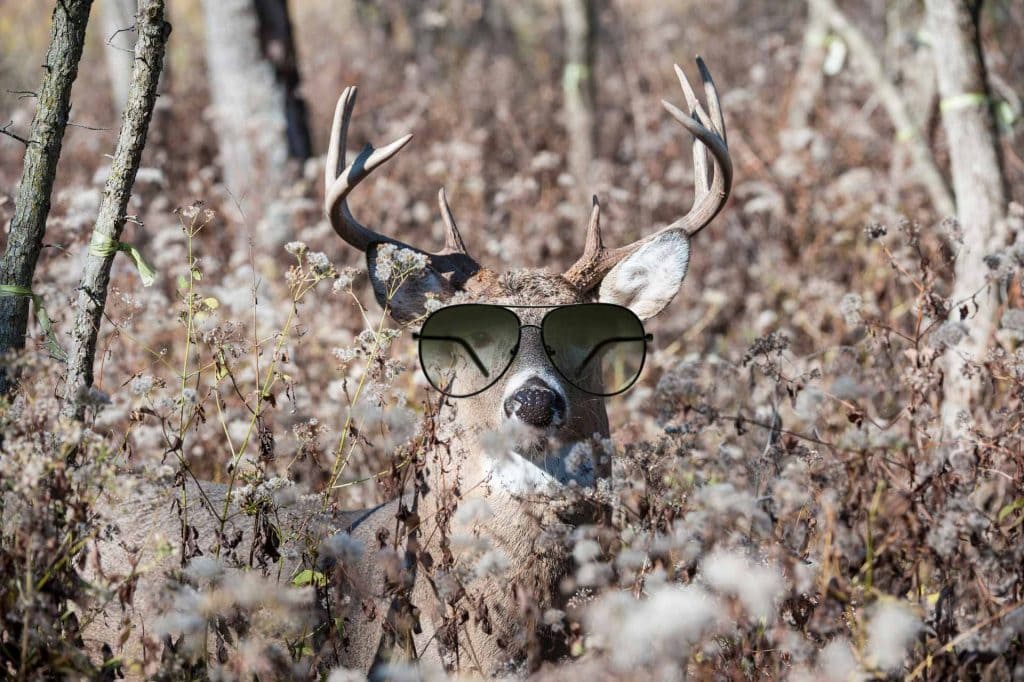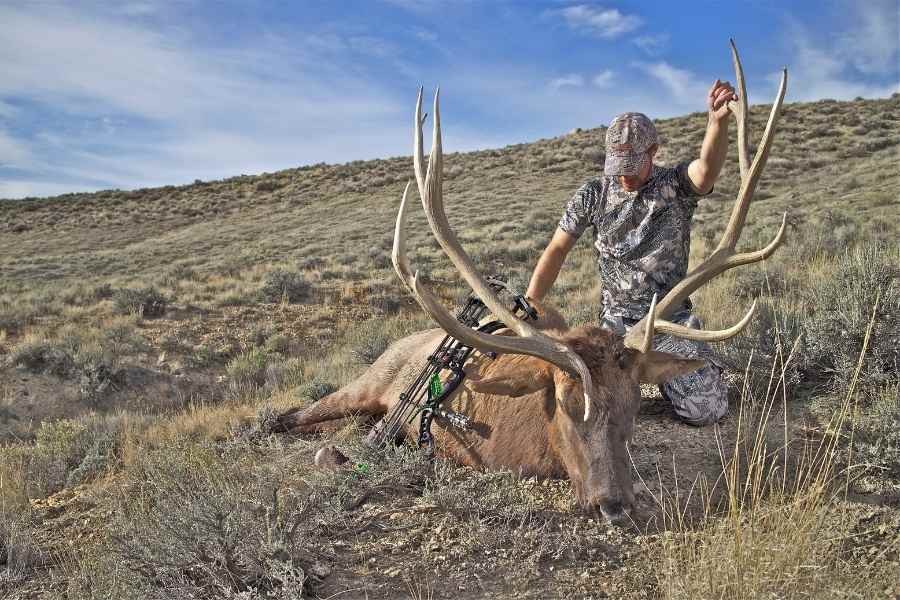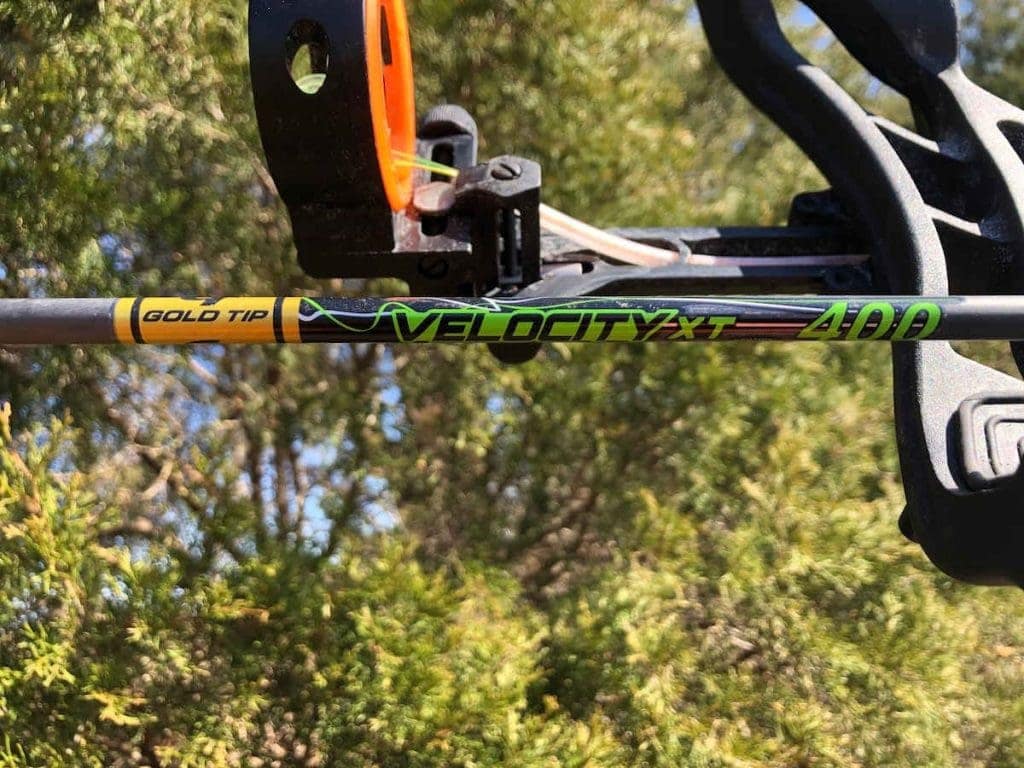For experienced bowhunters, understanding deer attraction to certain foods, like blueberries, is critical.
Indeed, deer are drawn to these fruits for their sweetness and nutritional value, feeding on both wild and cultivated varieties.
Your blueberry garden isn’t automatically a deer target.
Deer often prefer other food like grass and weeds, but taking preventative measures is wise.
Protecting your plants can involve netting, fencing, repellents, deterrents, or surrounding them with deer-resistant plants.
Contents (Jump to Topic)
ToggleLet’s explore the relationship between deer and blueberries.
Understanding Deer Dietary Habits
Deer have varied diets, consuming a vast range of plants. Still, their interest in blueberries depends on the availability of other food sources.
Deer eat blueberries, especially when alternative foods are scarce, typically in late summer and fall.
They tend to avoid larger bushes, around 4 to 6 feet tall.
To protect your blueberry bushes, consider strategic measures like fences and repellents.
read.. do deer eat apples
Blueberries: A Deer’s Delight
Why do deer find blueberries appealing? It’s due to their sweet taste and nutrients. Deer do eat blueberries, and they can consume large quantities quickly.
However, taller blueberry bushes, over 4 to 6 feet, are less likely to be browsed by deer.
Impact of Deer on Blueberry Bushes
Deer eating blueberries can harm your bushes, affecting their growth and fruit production.
Constant browsing, especially of new growth, can significantly impact bush health.
Consider netting, fencing, or using deer repellents to protect your blueberry bushes. Planting deer-resistant flora nearby can also help.
Methods for Protecting Blueberry Bushes
To safeguard your blueberry bushes from deer:
- Combine physical barriers and repellents.
- Use tall, sturdy cages made from materials like rebar.
- Apply homemade or commercial deer repellents to make the plants less appealing.
Tight-gauge wire mesh can also protect against deer and small mammals. Avoid plastic grow tubes in winter.
Fencing, string fences, and chicken wire cages are additional options. Surrounding your bushes with taller plants can provide extra protection.
Making Your Garden Less Attractive to Deer
Discourage deer by planting deer-resistant vegetation using deterrents like motion-activated sprinklers or noise devices.
For young plants, tall, sturdy cages are effective. In areas with snow, ensure your barriers are sufficiently high to prevent deer from reaching over.
Understanding deer behavior can guide effective garden protection strategies.
Before you go..
Deer are attracted to blueberries, but you can safeguard your bushes with the proper knowledge and tactics.
Implementing these strategies will help keep your blueberry bushes thriving and deer at bay.
Sources:
https://extension.umn.edu/yard-and-garden-news/deer-ate-my-blueberry-bush
https://permies.com/t/126118/berry/deer-browse-blueberry-bushes
https://forums.bowhunting.com/threads/blueberries-do-deer-eat-them.35280/
https://www.gardenguides.com/107199-keep-deer-eating-blueberry-plants.html
https://deergardener.com/do-deer-eat-blueberries-bushes/
